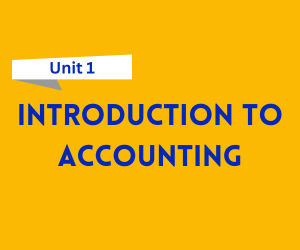Get instant access to Best BBA 1st Semester Notes in PDF. Perfect for offline study and quick reference to success. Download now!
Study Hub provide Well Structured BBA 1st Semester Notes in PDF format. “Download BBA 1st semester notes in PDF format, covering key subjects such as Principles of Management, Financial Accounting, Microeconomics, India Socio-Political Economics, Essentials of IT and Quantitative Techniques- I. Ideal for students seeking a detailed and organized study resource to excel in their coursework.”
BBA 1st Semester Notes Subject List :
BBA 1st Semester Notes All: UNITS

Principles of Management: Free Download
“Principles of Management” is a foundational subject in a Bachelor of Business Administration (BBA) program. It introduces students to the fundamental concepts and practices of management, focusing on how managers plan, organize, lead, and control resources to achieve organizational goals. Here’s a detailed breakdown of typical topics and units covered in this subject:

Unit 1: Introduction to Management

Unit 2: Planning and Decision-Making

Unit 3: Organizing

Unit 4: Leading and Motivating

Unit 5: Controlling
Financial Accounting: Free Download
“Business Economics” is a critical subject in a Bachelor of Business Administration (BBA) program, providing students with a framework to understand economic principles and how they apply to business decision-making. The course typically covers both microeconomic and macroeconomic concepts that influence business operations and strategies. Here’s a detailed breakdown of the typical topics and units covered in Business Economics:

Unit 1: Introduction to Accounting

Unit 2: Journal Entries

Unit 3: Ledger and Trial Balance

Unit 4: Final Accounts

Unit 5: Depreciation and Bank Reconciliation
Microeconomics: Free Download
Microeconomics is a branch of economics that focuses on the behavior and decision-making processes of individuals, households, and firms in allocating resources. It examines how these entities interact in markets, determine prices, and influence the supply and demand of goods and services. Key concepts in microeconomics include elasticity, utility, production costs, and market structures such as perfect competition, monopoly, and oligopoly.

Unit 1: Introduction to Microeconomics

Unit 2: Demand and Supply Analysis

Unit 3: Consumer Behavior

Unit 4: Production and Cost Analysis

Unit 5: Market Structures and Pricing
India Socio-Political Economics: Free Download
India’s socio-political economics examines the intricate interplay between its society, politics, and economy, shaped by its rich history, diverse culture, and democratic framework. As a developing nation, India grapples with challenges like income inequality, unemployment, and poverty, while striving for economic growth and social equity. The Indian economy, transitioning from an agrarian base to a more industrialized and service-oriented structure

Unit 1: Overview of India's Socio-Political and Economic Environment

Unit 2: Economic Planning and Development

Unit 3: Indian Political System and Governance

Unit 4: Indian Economic Policies and Reforms

Unit 5: Contemporary Issues in India's Socio-Economic Environment
Essentials of IT: Free Download
The essentials of Information Technology (IT) encompass the foundational concepts and tools that enable the efficient creation, storage, management, and dissemination of information. IT integrates hardware, software, networks, and databases to support business processes, decision-making, and communication in various domains. Key components include computer systems, operating systems, networking fundamentals, cybersecurity principles, and data management techniques.

Unit 1: Introduction to Information Technology

Unit 2: Fundamentals of Computer Hardware and Software

Unit 3: Office Automation Tools

Unit 4: Internet and Web Technologies

Unit 5: IT Security and Emerging Trends
Quantitative Techniques- I: Free Download
Quantitative Techniques-I focuses on the application of mathematical and statistical methods to analyze and solve business and economic problems. It provides foundational tools such as linear programming, measures of central tendency and dispersion, correlation, regression analysis, and probability theory. These techniques help in making data-driven decisions, optimizing resource allocation, and forecasting future trends.

Unit 1: Introduction to Quantitative Techniques

Unit 2: Basic Mathematical Concepts

Unit 3: Statistics for Business

Unit 4: Probability and Probability Distributions

Unit 5: Linear Programming and Optimization
General Skills Developed:
- Critical Thinking: Analyzing and evaluating different business scenarios and problems.
- Problem-Solving: Applying theoretical knowledge to practical business challenges.
- Communication: Developing the ability to articulate ideas clearly and persuasively.
- Quantitative Analysis: Using mathematical and statistical tools to make data-driven decisions.
Importance of the First Semester:
The first semester is crucial as it sets the foundation for the rest of the BBA program. It introduces students to key concepts that will be built upon in later semesters and helps them develop essential skills that are necessary for success in business studies and beyond. Additionally, it helps students to get acclimated to the academic environment and the expectations of a business degree program.
